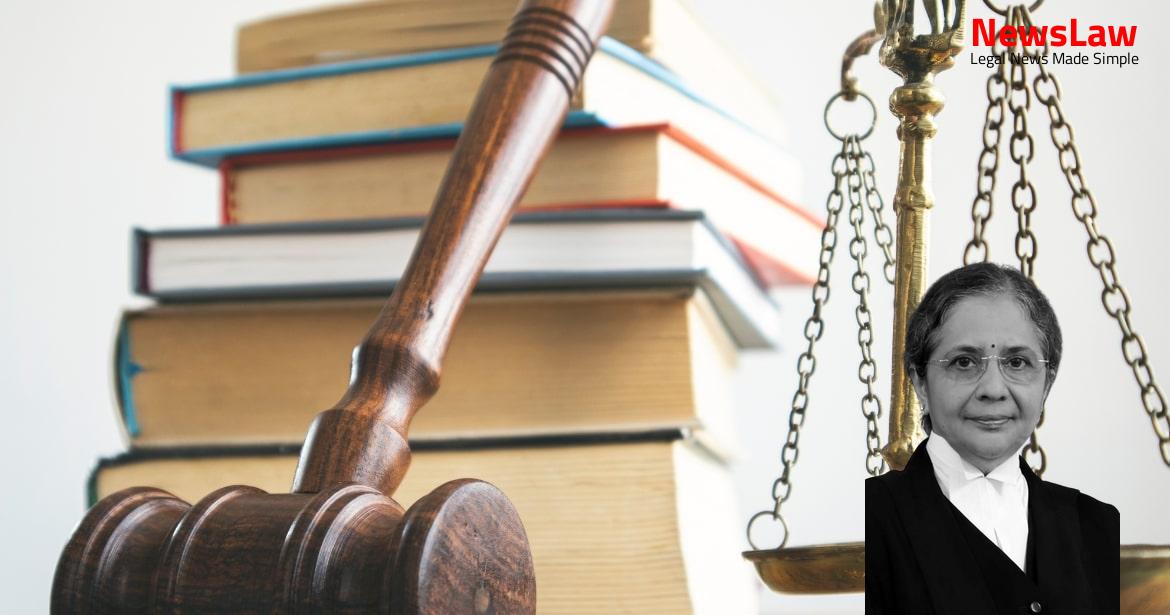In a recent judgment, the court delved into the interpretation of ‘total disablement’ under the Employees Compensation Act, providing a thorough legal analysis. This case sets a precedent for future compensation claims, shedding light on the assessment of disability and the criteria for determining total disablement. The court’s detailed analysis plays a crucial role in shaping the landscape of compensation law.
Facts
- The appellant was driving an auto-rickshaw used as a goods carrier when he noticed a pothole on the road and sustained severe injuries.
- His right upper limb was amputated, rendering him unfit for driving a vehicle, leading to total disablement.
- He filed a claim under the Employees Compensation Act 1923 citing the loss of capacity to drive due to the amputation.
- The Commissioner for Workmen’s Compensation allowed the claim based on total disablement.
- The first respondent appealed to the High Court against this decision.
- The disability should have been assessed as 70% partial permanent disability instead of 100%.
Also Read: Admission Deadline Adherence in Medical Courses
Arguments
- Appellant claimed total disablement due to the amputation of his right upper limb above the wrist joint.
- Counsel for the appellant referred to previous court cases to support the claim of total disablement.
- Dr. Laxmi Narayanana’s deposition stated a 40% permanent partial disability.
- First respondent argued that the appellant’s disablement was only partial, not total.
- First respondent also pointed out that the appellant did not have a driving license for the type of vehicle involved.
- First respondent contended that they were not liable to pay compensation for total disablement based on Section 4 of the Act.
- No interference needed with the judgment of the High Court
Also Read: From Nominee to Disqualified: Supreme Court Scrutinizes Age Evidence, Declares Election Invalid
Analysis
- Appellant suffered from permanent disablement due to the loss of left hand above the elbow.
- The appellant’s inability to perform carpentry work with only one hand was deemed reasonable and correct.
- The doctor’s opinion stated a 40% permanent partial disability with subsequent loss in earnings.
- The doctor’s assessment indicated a 100% functional loss of the right upper limb, rendering the appellant unable to perform the job of a driver.
- The High Court’s judgment accepted the appellant’s employment as a driver of an auto-rickshaw used for carrying goods.
- The first respondent’s liability to pay compensation was not contested and the disablement was found to have incapacitated the appellant from performing any activities with the right upper limb.
- The Commissioner’s finding highlighted that the appellant, a carpenter by profession, was permanently disabled as a result of the accident.
- The expression ‘total disablement’ is defined in Section 2(1)(e) of the Act.
- Total disablement refers to disablement that incapacitates a workman from performing any work they were capable of at the time of the accident
- It can be of a temporary or permanent nature
- The impugned judgment cannot be sustained and will have to be set aside.
- The appellant’s disability must be treated as 100% disability.
- The appellant’s case falls under the definition of ‘total disablement’.
Decision
- Entire compensation amount directed by Commissioner deposited by first respondent in High Court.
- Appellant has withdrawn amount payable as per impugned Judgment of High Court.
- Appellant entitled to withdraw balance amount deposited in High Court with interest, if any.
- Appeal allowed, order of High Court set aside.
Case Title: ARJUN Vs. IFFCO TOKIO GENERAL INSURANCE COMPANY LTD (2022 INSC 193)
Case Number: C.A. No.-001555-001555 / 2022



